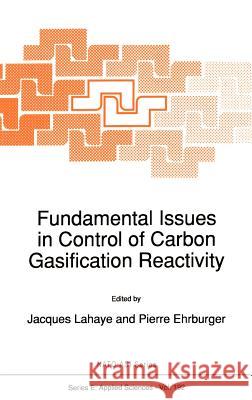Fundamental Issues in Control of Carbon Gasification Reactivity » książka
Fundamental Issues in Control of Carbon Gasification Reactivity
ISBN-13: 9780792310808 / Angielski / Twarda / 1991 / 622 str.
During the last decade there has been a renewed interest in under standing from a fundamental point of view the gasification of carbon. Basi cally there are two major issues in controlling the reactivity of carbon: i) reduction of the gasification rate of carbon materials in hostile environment ii) increase of the gasification rate in order to utilize carbonaceous compounds more effectively. Although these two objectives look somewhat contradictory, they are part of the general topics of understanding gasification reactivity of carbon. Refractory applications of carbon in furnace linings, seals and vanes, as well as the use of carbon-carbon or carbon-ceramic composites in struc tures able to withstand corrosion at high temperature require a better understanding of the fundamentals involved in carbon-oxidizing gas (02' CO, H 0) reactions. Furthermore a great interest of aluminium producers 2 2 is 10 extending the lifetime of carbon electrodes in alumina electrolysis which primarily depends on reducing their consumption rates by air or carbon dioxide. Proper control of gasification reactions is also of prime importance in manufacturing carbonaceous adsorbents like granular activated carbon clothes of high adsorption characteristics. The balance between increase of porosity and decrease in mechanical strength during activation is critical for developing new porous types of carbon materials in particular for carbon clothes and this can only be achieved by a careful control of the gasification reaction."











